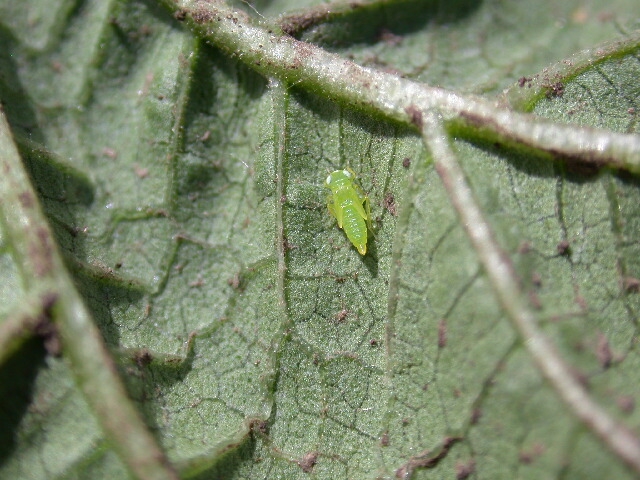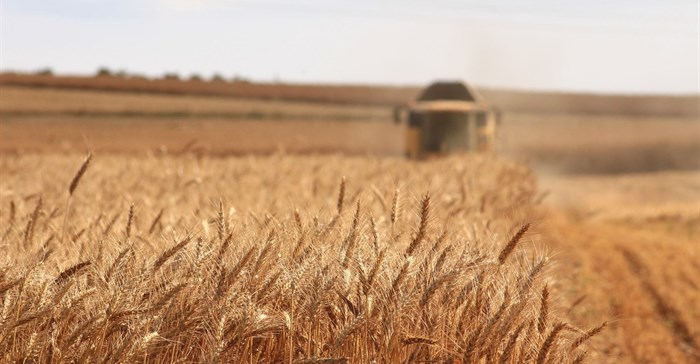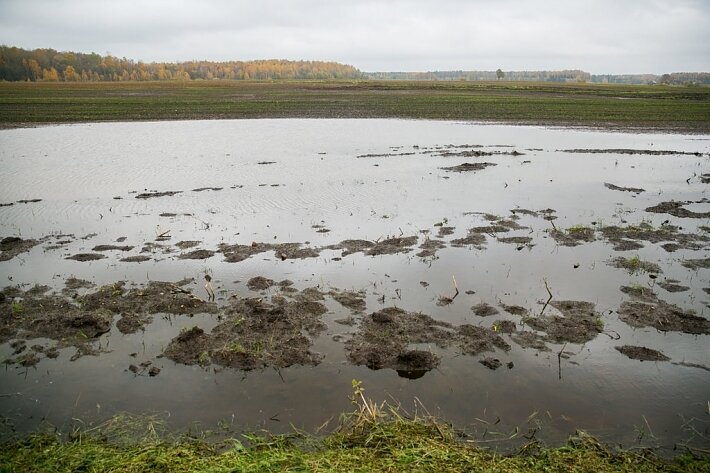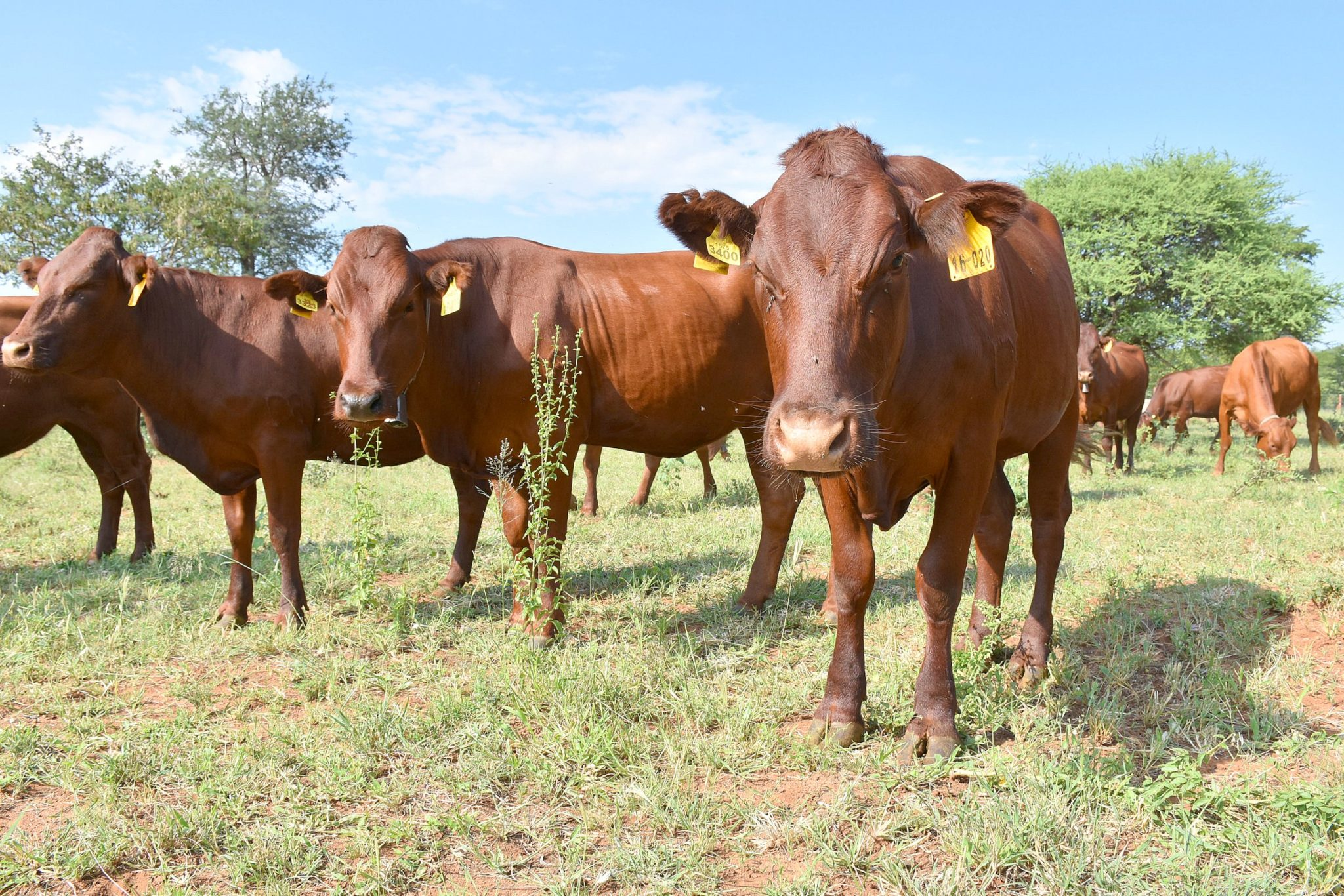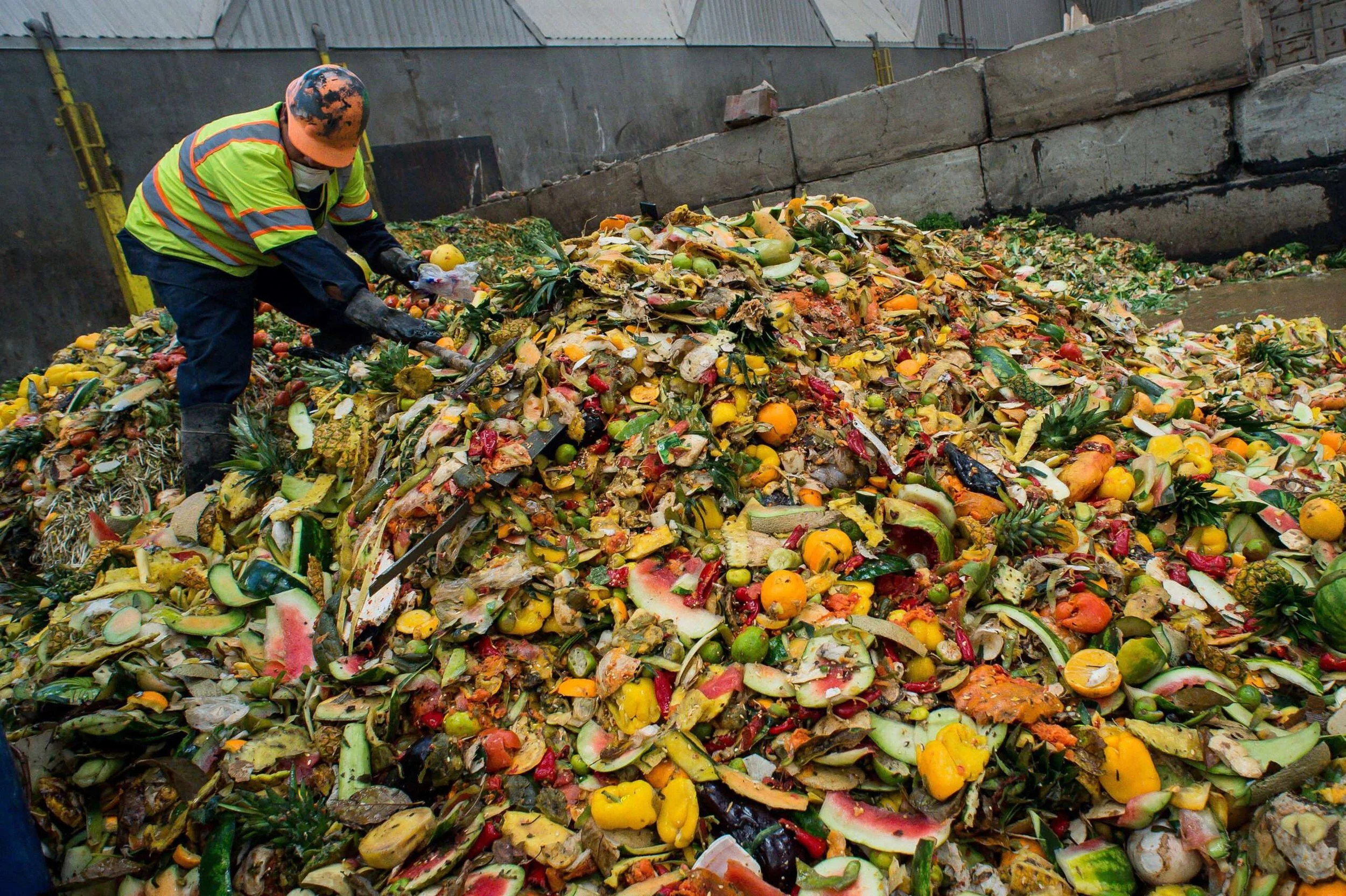Weather always has a significant impact when projecting what may happen with a particular crop from year to year. Potato leafhopper infestations are being reported in alfalfa fields in many areas of Michigan. Potato leafhoppers annually arrive in Michigan with storms originating from the Gulf Coast states. In alfalfa, the hot, dry weather often leads to increased populations of potato leafhoppers. Growers may not always notice the increased populations until damage has already occurred.
Adult potato leafhoppers are a small (0.125 inch long) green to greenish-yellow, wedge-shaped insect. These insects are able to reproduce at very rapid rates and can overwhelm a field. Potato leafhoppers feeds on the plants and the insect’s toxins (digestive enzymes) are injected into the plant during feeding, causing a condition known as hopper burn (see photo). Growers mistakenly assume these symptoms are caused either by a nutrient deficiency or by the lack of rainfall. The effects of potato leafhoppers are a reduction of yield, forage quality, plant vigor and winter hardiness. In other words, nothing good for an alfalfa stand.
Many companies offer new alfalfa varieties with leafhopper resistance. However, the need to scout fields is still a necessity. Stands that are not cut every 30 days, such as a new seeding that needs additional time to be established, are at a high risk of damage. Potato leafhopper-resistant varieties will have glandular hairs that exude droplets of a sticky compound. The resistance may fail to hold back the insects in years where the population is very high and it may still be necessary to control the pests with an insecticide.

Potato leafhopper damage in a new alfalfa seeding
For potato leafhopper control, producers have several options:
- Cultural control: Cutting alfalfa will kill the adults and nymphs in the forage, leading to a disruption in the potato leafhopper lifecycle.
- Genetic resistance: Use new potato leafhopper-resistant varieties that have up to 85 percent resistance genetically bred into the alfalfa.
- Chemical control: Once the alfalfa is over threshold, this is the most viable method of control if the field is not scheduled to be cut in the next seven days. Many options are available. Generally, the cost of an insecticide application, including application cost, will be about $12 per acre.
Source - msue.anr.msu.edu



